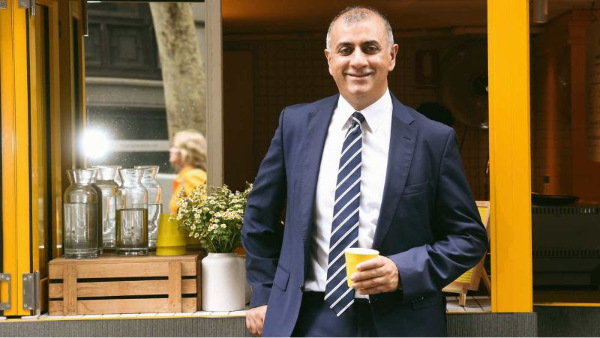Gaming still bigger than Ben Hur
Covid-19 made gaming an even bigger industry, projected to again outpace the movie and digital music industries combined in terms of revenue in 2024, according to Insync Funds Management CIO, Monik Kotecha.
Friday, January 26th 2024, 8:25AM
by Insync

"You might say it is bigger than Ben Hur," Kotecha said, "and shows no signs of being reined in or slowed down, in fact the reverse."
Global data and business intelligence platform, Statista, reported that in 2024 the video games market worldwide is projected to reach revenues of US$282.30 billion. The annual expected growth rate is 8.76% between 2024-2027, which would amount to US$363.20 billion by 2027. This compares to 2024 global box office revenue projections of around $US41 billion and around $US41 billion for the digital music market.
Kotecha said gaming offers a unique blend of entertainment, social interaction, and immersive experiences that other media forms can’t match.
"Gaming is such a huge industry because it is part of a correspondingly huge gaming megatrend, which taps into two powerful super drivers – technological breakthroughs and demographic shifts," he said. "It is an almost perfect example of multiple megatrends converging, a unique confluence of technology, social change, and consumer behaviour."
Gaming is at the cutting edge of both advanced technology, which requires ever more powerful processing chips, for example, and entertainment creativity, such as the advancements in augmented and virtual reality that add new dimensions to gaming experiences. "Artificial Intelligence (AI) also plays a crucial accelerating role, driving innovations in game design, personalisation, and the user experience," he said.
"The social aspect of gaming has transformed it into a digital hangout space, further embedding it into the fabric of daily life. It’s common for groups of players from multiple backgrounds and countries to play the same game – live."
Nintendo is an excellent example, with a history of over 120 years serving the gaming industry. Beginning with playing cards in Japan, it has developed into a global concern, valued at around US$64 billion. It has sold 119 million units of its iconic GameBoy, 100 million Wii consoles, 920 million Wii games and 122 million Switch consoles. Nintendo also has theme parks and produces movies around its games and characters.
"Nintendo generates half its overall profit from consoles," Kotecha said. "Its peers are losing money on consoles in the hope that their games will compensate. Cleverly, however, Nintendo is not using leading edge technology but proven tech which comes at a far lower cost, giving it another big competitive edge. It has excellent financial and cash strength and takes a very long view in running its business."
Demographically, younger generations, particularly those aged 13-17 (intersection of Gen Alphas and Gen Zers), are increasingly gravitating towards gaming, spending 40% more time in virtual worlds than in any other form of media.
"As they age, the habits of these generations are likely to influence mainstream media consumption trends," Kotecha said. "For example, as we have seen with Nintendo, there are now many blockbuster films created off the back of online games."
The gaming megatrend is not limited to the western world, or to young men. "Large developing economies like India and Mexico have gaming growth rates exceeding 30%. The appeal of gaming is also strong amongst women and those over 55," Kotecha said. "This growth reflects a deep-seated shift in consumer preferences and behaviours."
Companies in the sector are also well advanced in extracting further revenue opportunities from the information they gather and other cross-selling services beyond game subscriptions, making them attractive from an investment perspective.
Established in July 2009 by Monik Kotecha and Garry Wyatt, Insync Funds Management Pty Ltd (Insync) is a core global equities manager based in Sydney with Equity Trustees as its RE. A high conviction, bottom-up, quality style manager, Insync employs a valuation-based approach, selecting stocks from a concentrated group of global large cap companies. These stocks must meet Insync’s rigorous filters, benchmarks and hurdles, and be beneficiaries of one or more of 16 global megatrends that Insync has identified are key predictors of growth. They must also consistently allocate capital efficiently, and have a high Return on Investment Capital (ROIC). For more info see https://www.insyncfm.com.au/
| « The bird in the hand or two in the bush? | What does the rest of 2024 have in store? » |
Special Offers
Comments from our readers
No comments yet
Sign In to add your comment
| Printable version | Email to a friend |









